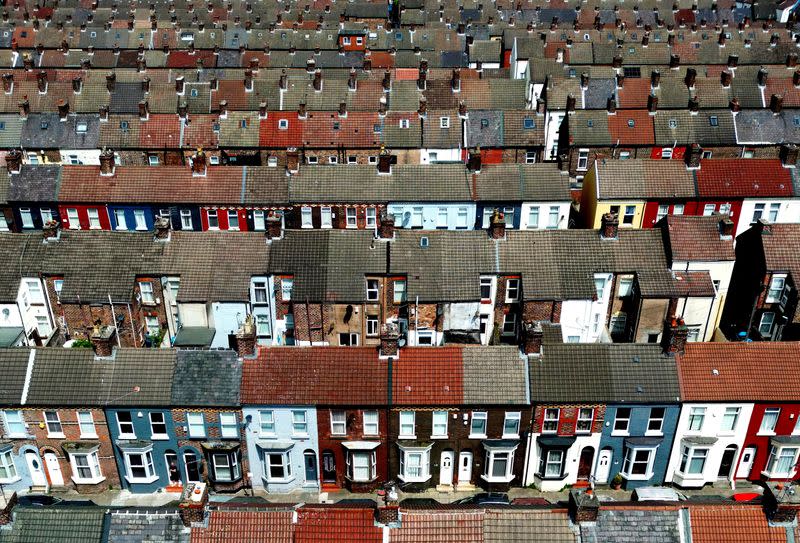UK house price gauge hits 14-year low as interest rates weigh - RICS

LONDON (Reuters) - British house prices showed the most widespread falls in 14 years in August as demand weakened against the backdrop of elevated mortgage costs and economic uncertainty, an industry survey showed on Thursday.
The Royal Institution of Chartered Surveyors (RICS) house price balance, which measures the difference between the percentage of surveyors seeing rises and falls in house prices, slumped to -68 in August from -55 in July.
Thursday's house price balance marked the weakest reading since February 2009 and was below the -56 forecast in a Reuters poll of economists.
Simon Rubinsohn, chief economist at RICS, said the survey pointed to a sluggish housing market with little sign of relief in prospect.
"Prices are continuing to slip albeit that the relatively modest fall to date needs to be seen in the context of the substantial rise recorded during the pandemic period," Rubinsohn said.
The survey results echoed other signs of slowdown in the property sector.
Mortgage lenders Halifax and Nationwide have both shown prices falling in monthly terms as the Bank of England's sustained run of interest rate rises, persistent inflation and a prolonged cost-of-living crisis squeeze home-buyers.
Official figures, released on Wednesday, showed the country's economy shrank by a sharper-than-expected 0.5% in July after public sector strikes and unusually rainy weather weighed on output.
Overall across Britain, RICS' measure of agreed sales was the weakest since April 2020 when much of the property sector was on lockdown due to the COVID-19 pandemic, and new buyer enquiries fell marginally from the month before.
In the rental market, tenant demand continued to outstrip landlord instructions, limiting the number of available homes to rent, while a net balance of +60% surveyors expect to see a rise in rental prices over the coming three months.
Separate figures from property website Zoopla on Thursday showed the joint-highest rental affordability squeeze, with tenants spending 28.4% of their earnings in July on rent.
(Reporting by Suban Abdulla, editing by Andy Bruce)

 Yahoo News
Yahoo News 
